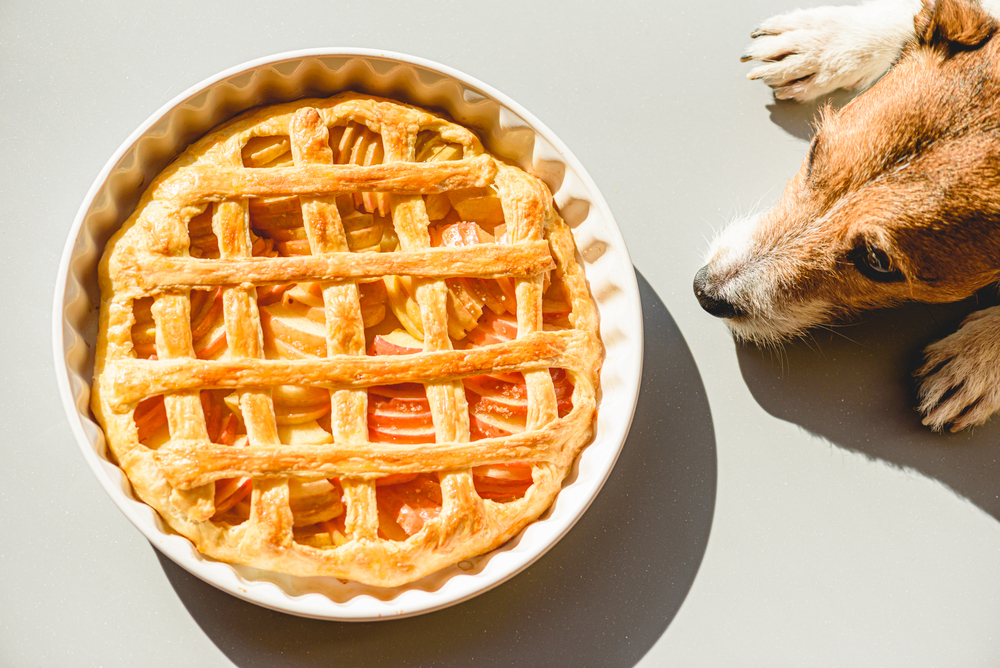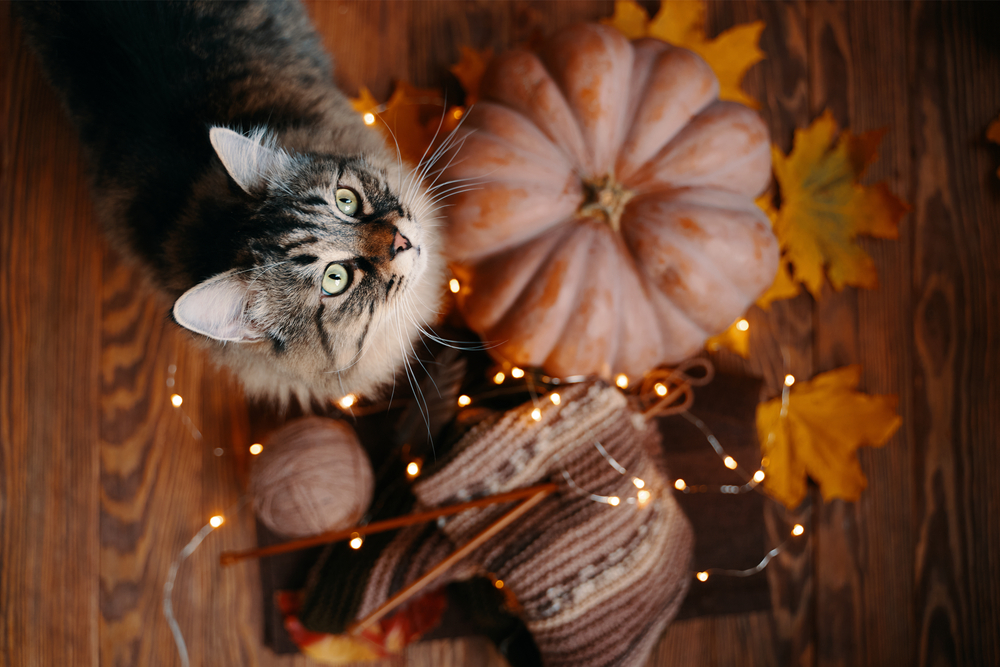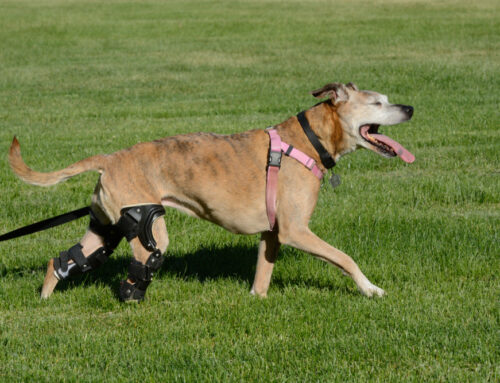Thanksgiving seems like the ultimate holiday for pets. Delightful aromas? Check! Tasty foods? Check! Overly indulgent owners and holiday guests who can’t resist those sad hungry eyes? Double check!
But amid the holiday hustle and bustle, our beloved pets can find themselves in a cornucopia of trouble. To ensure you have a happy and hazard-free holiday, Veterinary Medical Center of Indian River County has prepared a four-step guide to Thanksgiving success with pets.
#1: Bird’s the word—avoid turkey trouble by treating your pet right
Turkey can be a healthy treat for pets, but most components of the majestic centerpiece are a recipe for disaster. You can safely feed your pet a small amount of skinless, boneless white turkey meat, but avoid these common hazards from the rest of the big bird:
- Trimmings, fat, and grease — Turkey skin, fat, and pan drippings may be full of flavor, but these trimmings are too rich for pets. Only a few bites can trigger pancreatitis, a severe and sometimes life-threatening inflammatory condition that frequently requires hospitalization for your dog.
- Turkey bones — Cooked bones can splinter and lacerate your pet’s gums or upper gastrointestinal (GI) tract. Dense, weight bearing bones can break teeth. Raw or cooked bones can cause choking or become lodged in the upper jaw.
- Dressing or stuffing — Whether you cook the stuffing inside the turkey or on the side, this popular dish often contains pet-toxic ingredients, such as garlic, onions, leeks, raisins, and currants.
- Wrappings, twine, and foil — Keep all trash out of your pet’s reach. Pets often consume food wrappers and packaging that contain turkey remnants or aromas, which then become trapped in the intestine, and require life-saving surgical removal.
#2: Nosh not—keep pets away from these harmful foods
Traditional Thanksgiving favorites feature many unsafe ingredients for pets. Avoid feeding your pet any item containing toxic ingredients, including:
- Garlic, onions, or leeks
- Grapes, raisins, or currants
- Yeast dough
- Alcohol
- Caffeine
- Chocolate
- Xylitol
- Macadamia nuts
For your greatest peace of mind, we recommend keeping all pets out of the kitchen during meal preparation to prevent them from eating dropped or stolen food. Consider crating or confining your pet to an area where they can watch the kitchen activity from a safe distance. If your pet is anxious, offer them a long-lasting treat, such as a food-stuffed Kong or a lickable mat filled with safe Thanksgiving ingredients (e.g., plain pureed pumpkin or sweet potato, apple slices, white meat turkey, and green peas), to keep them preoccupied.

#3: Where are your manners? Proper pet-etiquette for guests
Pet-related altercations (e.g., bites and scratches) are common during the holidays, likely because pets can be seriously—but perhaps not obviously—stressed from the sudden influx of visitors, noise, and activity. Guests may not interact safely with pets and may make unintentionally threatening gestures (e.g., reaching out to pet a frightened cat, or attempting to hug a nervous dog).
Protect your pet and your guests by establishing a few clear ground rules, including:
- Ensuring everyone on your guest list knows about your pet
- Crating or confining your pet during busy times
- Asking guests to leave your pet alone while they are eating, sleeping, or playing with a toy
- Informing guests not to hug, reach over, or try to pick up your pet, which your pet can misperceive as dominating or threatening postures
- Supervising your pet during any interactions with children
- Asking guests not to feed your pet from their plate
If your pet does bite or scratch someone, remain calm, and quietly remove your pet from the area. If the guest’s skin is broken, recommend that they seek medical care to prevent infection.
#4: Take a holiday from the neighborhood—give your pet a quiet place to rest
If your pet is typically nervous around strangers and anxious about changes in their environment, you should consider special measures to ensure their safety and comfort during the holidays. If you’ll be traveling, consider leaving your pet at home with a trusted friend or pet sitter, which will prevent unnecessary disruptions and stress. Anti-anxiety medication and supplements may be beneficial, although these work best when you minimize your pet’s stress-inducing triggers.
Whether you’ll be traveling or hosting the holiday at your home, create a safe space where your pet can come and go as they please, or—if they’re especially nervous—stay confined during the event. Depending on your pet’s comfort level and your available space, this could be a small, quiet room or a crate covered with a sheet to minimize visual stimuli. Include your pet’s necessities (e.g., litter box, water) as well as cozy bedding and toys to provide comfort and security. Check on your pet frequently and provide lots of one-on-one attention and exercise to reassure them and help them relax.
Preparation is the key ingredient for a pet-safe Thanksgiving
No one likes to think about potential pet emergencies, but extra consideration for your pet’s health and happiness can ensure you’ll be thankful for all the right things this Thanksgiving—including how well you’ve prepared.
The Veterinary Medical Center of Indian River County team is thankful that you entrust us with your precious pet’s care. Contact our knowledgeable staff for more information on reducing pet anxiety or to discuss medication options with our veterinarian.







Leave A Comment